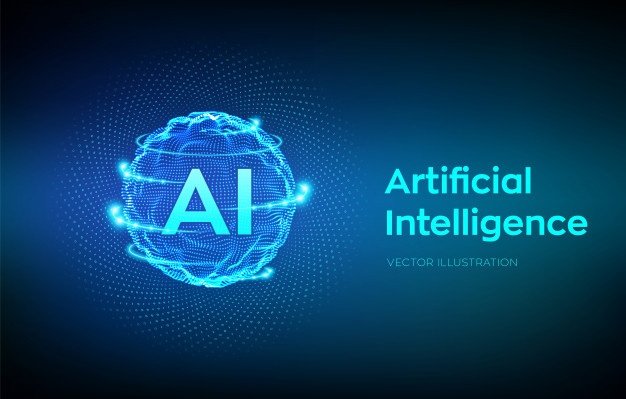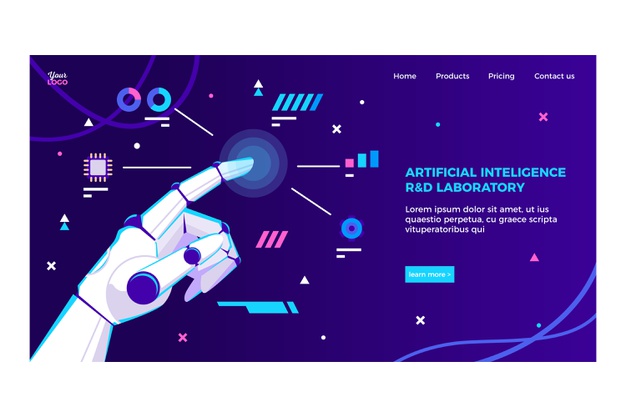AI CoE for Global Capability Centers
3AI March 7, 2020

Global Capability Centers(GCC’s) are at an inflection point as the pace at which AI is changing every aspect is exponential and at high velocity. The rapid transformation and innovation of GCC’s today is driven largely by ability for them to position AI strategic imperative for their parent organizations. AI is seen to the Trojan horse to catapult GCC’s to the next level on innovation & transformation. In recent times; GCC story is in a changing era of value and transformative arbitrage. Most of the GCCs are aiming towards deploying suite of AI led strategies to position themselves up as the model template of AI center of Excellence . It is widely predicted that AI will disrupt and transform capability centers in the coming decades. How are Global Capability Centers in India looking at positioning themselves as model template for developing AI center of competence? How have the strategies of GCCs transformed with reference to parent organization? whilst delivering tangible business outcomes , innovation & transformation for parent organizations?
Strategic imperatives for GCC’s to consider to move incrementally in the value chain & become premier AI center of excellence
AI transformation
Artificial Intelligence has become the main focus areas for GCCs in India. The increasing digital penetration in GCCs across business verticals has made it imperative to focus on AI. Hence, GCCs are upping their innovation agenda by building bespoke AI CoEs. Accelerated AI adoption has transcended industry verticals, with organizations exploring different use cases and application areas. GCCs in India are strategically leveraging one of the following approaches to drive the AI penetration ahead –
- Federated Approach: Different teams within GCCs drive AI initiatives
- Centralized Approach: Focus is to build a central team with top talent and niche skills that would cater to the parent organization requirements
- Partner ecosystem : Paves a new channel for GCCs by partnering with research institutes , start-ups , accelerators
- Hybrid Approach: A mix of any two or more above mentioned approaches, and can be leveraged according to GCC’s needs and constraints.
Ecosystem creation : Startups /research institutes/Accelerators
One of the crucial ways that GCCs can boost their innovation agenda is by collaborating with start-ups, research institutes , accelerators. Hence, GCCs are employing a variety of strategies to build the ecosystem. These collaborations are a combination of build, buy, and partner models:
- Platform Evangelization: GCCs offer access to their AI platforms to start-ups
- License or Vendor Agreement: GCCs and start-ups enter into a license agreement to create solutions
- Co-innovate: Start-ups and GCCs collaborate to co-create new solutions & capabilities
- Acqui-hire: GCCs acquire start-ups for the talent & capability
- Research centers : GCCs collaborate with academic institutes for joint IP creation , open research , customized programs
- Joint Accelerator program : GCCs & Accelerators build joint program for customized startups cohort
To drive these ecosystem creation models, GCCs can leverage different approaches. Further, successful collaboration programs have a high degree of customization, with clearly defined objectives and talent allocation to drive tangible and impact driven business outcomes.
AI Center of Competence/ Capability
GCCs are increasingly shifting to competency , capability creation models to reduce time-to-market. In this model, the AI Center of Competence teams are aligned to capability lines of businesses where AI center of competence are responsible for creating AI capabilities , roadmaps and new value offerings, in collaboration with parent organization’s business teams. This alignment and specific roles have clear visibility of the business user requirement. Further, capability creation combined with parent organization’s alignment helps in tangible value outcomes. In several cases, AI teams are building new range of innovation around AI based capabilities and solutions to showcase ensuing GCC as model template for innovation & transformation . GCCs need to conceptualize a bespoke strategy for building and sustaining AI Center of Competence and keep it up on the value chain with mature and measured transformation & innovation led matrices.
Talent Mapping Strategy
With the evolution of analytics ,data sciences to AI , the lines between different skills are blurring. GCCs are witnessing a convergence of skills required across verticals. The strategic shift of GCCs towards AI center of capability model has led to the creation of AI , data engineering & design roles. To build skills in AI & data engineering, GCCs are adopting a hybrid approach. The skill development roadmap for AI is a combination of build and buy strategies. The decision to acquire talent from the ecosystem or internally build capabilities is a function of three parameters –Maturity of GCC ’s existing AI capabilities in the desired or adjacent areas ,Tactical nature of skill requirement & Availability and accessibility of talent in the ecosystem. There’s always a heavy Inclination towards building skills in-house within GCCs and a majority of GCCs have stressed upon that the bulk of the future deployment in AI areas will be through in-house skill-building and reskilling initiatives. However, talent mapping strategy for building AI capability is a measured approach else can result in being a Achilles heel for GCC and HR leaders.
GCCs in India are uniquely positioned to drive the next wave of growth with building high impact AI center of competence , there are slew of innovative & transformative models that they are working upon to up the ante and trigger new customer experience , products & services and unleash business transformation for the parent organizations. This will not only set the existing GCCs on the path to cutting-edge innovation but also pave the way for other global organizations contemplating global center setup in India.AI is becoming front runner to drive innovation & transformation for GCCs.





